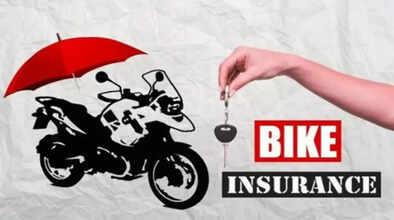Bike Insurance: How many types of bike insurance are there? Which one will be best for you, know it before buying the policy..

Bike insurance helps you avoid expenses arising from an accident, natural disaster, or loss due to a third-party liability. However, with so many options available in the market, choosing the right type of bike insurance policy can be difficult.
Understanding the different types of bike insurance policies in India will help you choose the right insurance policy according to your needs.
Third-party bike insurance
Third-party bike insurance, also known as third-party liability insurance, is legally mandatory for all bike owners in India. It is considered to be the most basic policy. It covers damage or injuries to third-party property or persons due to a bike accident.
But keep in mind that this policy does not cover damage to your bike. The premium of third-party insurance is decided by IRDAI. The coverage in it is limited, so its premium is also lower than that of other policies.
Comprehensive Bike Insurance
Comprehensive bike insurance covers both third-party liabilities and damage to the insured bike (your bike). It also covers incidents like accidents, theft, natural disasters, and man-made disasters. You also have the option of riders or add-on covers to get extensive coverage. In this policy, you can include covers like zero depreciation, roadside assistance, and engine protector cover for the safety of your vehicle.
Own Damage Bike Insurance
Own Damage bike insurance covers loss or damage to your own bike. It will also cover accidents, theft, fire, and natural or man-made disaster. But it does not provide coverage for third-party liability. Yes, if you have third-party insurance, you can take Own Damage cover for complete protection.
Disclaimer: This content has been sourced and edited from Dainik Jagran. While we have made modifications for clarity and presentation, the original content belongs to its respective authors and website. We do not claim ownership of the content.

